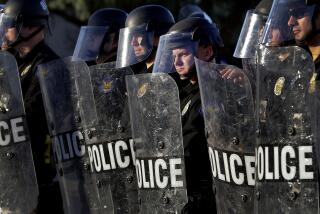Victimsâ Advocates Get a Look at Files on Hard-to-Prosecute Sex Cases
PHILADELPHIA â At the end of the line for sex crime cases are the so-called unfounded files.
In them are attacks on women that are so random police are stumped, accusations by children that are so wild they cannot be used or recanted testimony by women against abusive husbands.
Now Philadelphia police are taking a second look. Officials have invited a handful of special victimsâ advocates to examine these dead-end cases and make recommendations to police about ways they can be revived.
Itâs believed to be the first time a cityâs police department has opened its sex crimes cases to scrutiny from victimsâ groups.
While supporters say the openness will benefit future investigations, police officials hope it will help improve the image of the cityâs troubled sex crimes unit. Earlier this year, the department admitted misreporting thousands of sexual assaults over the past decade to make the city appear safer than it was.
To help remedy the situation, Police Commissioner John Timoney ordered a review of thousands of old cases, added dozens of new detectives and--in a surprise concession--allowed a handful of advocates for women and children to review cases.
âI made a conscious decision to blow the doors open. Will you get blown apart sometimes? Sure,â Timoney said. âBut the bad stories will come out anyway, and this way all the information is out there.â
Six legal experts and victimsâ advocates made three visits this month to the special victims unit. The group sifted through about 100 rape and attempted-rape cases from 1999 that were classified as unfounded.
After the first two meetings, the group requested the full case files for 20 cases. Last week, the group presented officials with 10 cases that the advocates thought needed to be reviewed.
The names of victims and suspects were blocked out on the initial reports; identities were included in the full reports, but advocates agreed not to take notes or disclose identities. âWe saw some teenagers who we thought maybe might have been raped, who changed their story maybe because they were afraid of getting in trouble,â said Carol Tracy, executive director of the Womenâs Law Project.
The unique experiment yielded unprecedented dialogue with police, advocates said. Police officials remembered specific cases and sometimes discussed why a suspect was not interviewed or promised to ask the investigator about re-interviewing a victim.
âI think they have taken many corrective measures,â said Tracy.
Capt. Joseph Mooney, a former internal affairs detective now leading the special victims unit, said the outside guidance was helpful and is likely to continue.
âThe advocates have worked with victims and cases similar to this, so you get an insight into victims. You donât see that side of it as clearly as you would or could on the police side,â Mooney said.
The experiment is evolving. Advocates want to study the cityâs sexual assault cases and look for trends, such as the tendency for Philadelphiaâs assault victims to be under age 18, Tracy said.
The cooperation developed after the Philadelphia Inquirer reported last fall that thousands of sexual assault cases had been improperly shelved since the sex crimes unit was founded in 1981. Police officials confirmed that many were classified in a way that helped deflate crime statistics.
Experts say the open dialogue and access to police files is helpful, especially for victimsâ groups.
âOften in homicide cases, when they have a cold case, theyâll seek outside experts,â said University of Pennsylvania professor Ann Burgess, who has written six books about sex crime victims and offenders. âThis is a little different, but what they are asking is similar, âHave you seen something here that we have missed?â â
More to Read
Sign up for Essential California
The most important California stories and recommendations in your inbox every morning.
You may occasionally receive promotional content from the Los Angeles Times.










